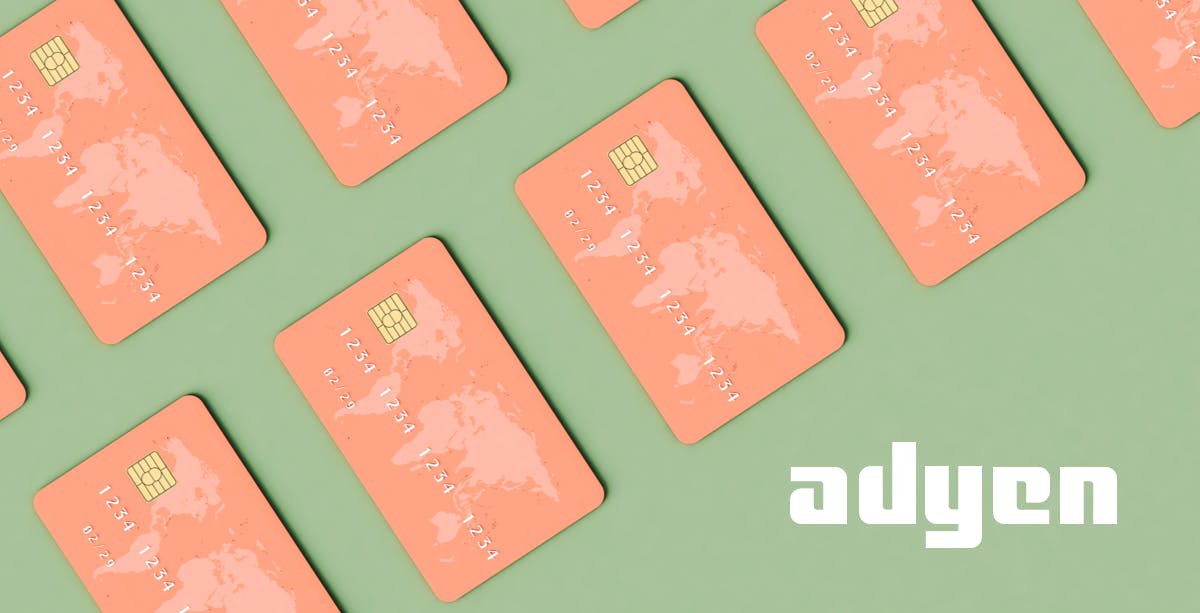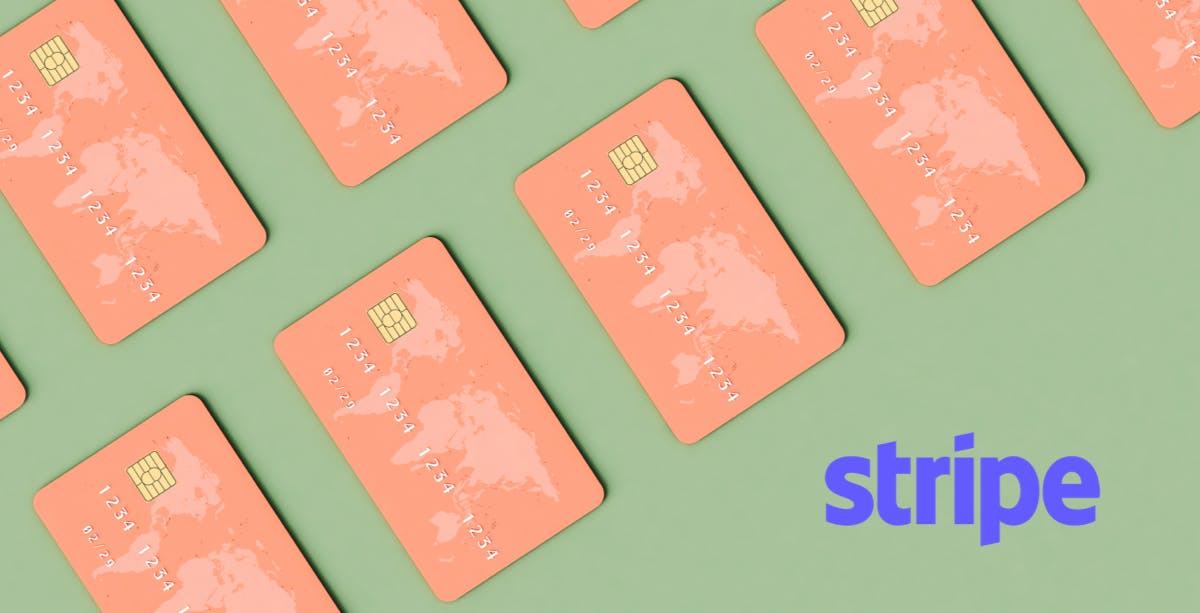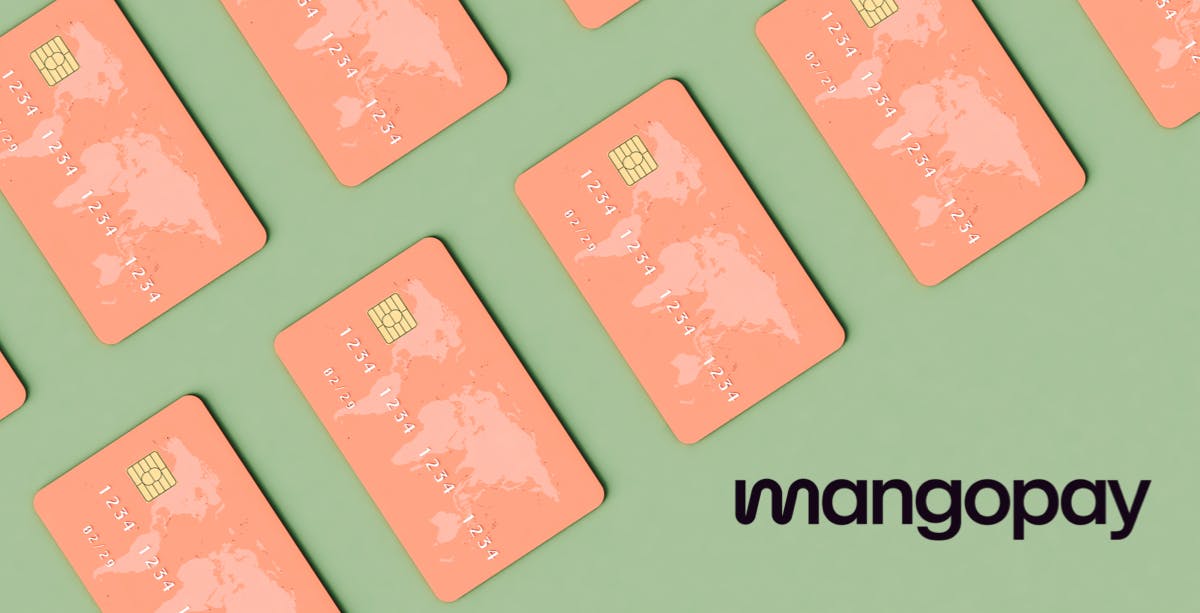Adyen marketplace payments – overview of key features
Should you choose Adyen for your marketplace payments? Read this article to know Adyen's features, fees, supported currencies and countries, tax handling, & more.
Published on
Last updated on

As a marketplace owner, choosing a marketplace payment provider is one of your most important decisions. It determines your marketplace transaction flow, the trust and security of your users, and your ability to scale your business.
While over 10,000 businesses currently use Adyen’s marketplace payments system, can it work for you, too?
In this guide, we provide an overview of Adyen for Platforms' key features to help you determine if it’s the right choice for your marketplace.
Key points in this article:
- Background information on Adyen: Valuation, competitors, and well-known marketplaces using Adyen.
- Adyen for Platforms key marketplace features: Countries and currencies, key payment flow features, and security tools.
- Adyen pricing and some notes about their integration and support quality.
Adyen is a leading payments company founded by Pieter van der Does and Arnout Schuijff in 2006 and headquartered in Amsterdam, Netherlands. They provide an end-to-end payment platform that enables businesses to accept payments across online, mobile, and in-store channels.
Adyen did not go public until June 2018, when its shares were at 240 euros, and its valuation was 7.1 billion euros.
The company continued its growth after its process volume accelerated in 2020.
Here are some other vital metrics about Adyen:
- In H1 2023, Adyen processed about 10 billion payment transactions worldwide.
- Adyen has 3,000+ employees and offices in 27 countries.
- In 2023, Adyen's processed volume was €970.1 billion, up 26% year-on-year. Of these, point-of-sale volumes were €159.9 billion, up 42% for the year.
- Adyen’s 2023 company’s net revenue was €1,626.1 million, up 22% year-on-year.
- Some of their well-known investors are Temasek Holdings, ICONIQ Capital, Index Ventures, Felicis Ventures, and General Atlantic.
- In 2018, Adyen replaced PayPal as eBay’s payment provider.
For a long time, Adyen focused on servicing traditional online businesses. In 2016, Adyen launched Adyen for Platforms (formerly MarketPay) specifically for marketplaces. Adyen has since focused on winning market share by offering lower fees than its competitors.
There are hundreds of online payment providers out there, which means there are many competing solutions. In the specific area of online marketplaces, Adyen for Platforms' main competitors include:
This article has a table that helps you compare the different marketplace payment solutions.
Since its launch in 2016, many successful companies have adopted the Adyen for Platforms marketplace payments system. These include:
- Uber (Ride-hailing)
- eBay (Online marketplace)
- Vinted (Second-hand fashion marketplace)
- SeatGeek (Ticketing marketplace)
- GoFundMe (Crowdfunding platform)
- Airbnb (Accommodation marketplace)
Every marketplace payment provider has its strengths and weaknesses. While Adyen has very competitive pricing, a potential drawback is its limited list of supported countries.
Despite this limitation, Adyen’s marketplace payments provide essential features for marketplaces to achieve smooth revenue management and payment processing.
Let's explore these Adyen’s marketplace features in more detail:
The rules for online payments vary globally; therefore, a payment platform may not be able to offer all of its features everywhere.
To pick the right payment platform for your marketplace, you must consider whether they:
- Pay sellers in the countries you serve.
- Accept currencies from your target markets.
- Offer popular payment methods in those countries.
You need all three to offer a sufficiently good payment experience. Let's describe Adyen for Platforms' countries, currencies, and payment methods.
Adyen for Platforms supports 35 countries, including the United States, the United Kingdom, Germany, Australia, and more. You can onboard sellers operating in any of these supported countries and regions.
Adyen for Platforms supports payouts only in the local currencies of the 35 countries it supports. This means 15 currencies, including
- USD
- CAD
- GBP
- EUR
- AUD
- NZD
Adyen's currency support is relatively fair compared to PayPal for Marketplaces (24 currencies) and Mangopay (15 currencies). However, it falls short of Stripe Connect's extensive support for 135 currencies.
Adyen for Platforms supports 27 local and international payment methods, enabling marketplaces to offer their customers a localized and convenient payment experience worldwide.
This includes popular options like:
- ACH Direct Debit
- Cards
- Pay by Bank (Europe)
- Credit/debit cards like Visa, Mastercard, American Express
- Digital wallets like Apple Pay, Google Pay, and PayPal
In addition to these globally popular options, Adyen supports several popular regional payment methods to cater to local preferences. These include EFTPOS for Australia, iDEAL for the Netherlands, Bancontact for Belgium, and China UnionPay (CUP) for transactions involving Chinese customers.
Offering these local options reduces friction during checkout and improves conversion rates by aligning with customers' banking habits and preferences.
Most marketplaces profit by taking a commission from the seller's payout. However, manually doing so would take a lot of time and effort and risk violating online payment regulations. That’s where the split payment feature comes in.
Split payments divide a single payment among different people or accounts. Automating this process reduces errors and makes it easier to comply with regulations.
Adyen for Platforms offers the split payments feature, allowing you to take your commission and pay other parties involved, such as the seller, referral, shipping fees, etc.
Adyen’s API provides two main methods for splitting payments:
- Split at authorization: This feature lets you split the payment between the balance accounts in your marketplace by including the split instructions in your authorization request. You can separately book the sale amount, your marketplace's commission, transaction fees, and the leftover amount after currency conversion.
- Split at capture or refund: If the split amounts are unknown or decided at the time of payment, you can split the funds during capture (settlement) or refund requests. The split instructions determine how you split a transaction.
You can configure Adyen’s split payments manually for each transaction or set up automatic rules based on pre-defined criteria.
Additionally, you can create split configurations for different scenarios, such as commissions or fees, and link them to specific user stores within your platform.
To build trust, most marketplaces want to hold the buyer's payment temporarily until the customer has received the product or service they bought This is called delayed payout, or escrow.
Escrow keeps the buyer’s funds in a secure, third-party escrow account until both parties (buyer and seller) have fulfilled their respective obligations. This method prevents issues like fraud, order disputes, and non-delivery. Escrow is strictly regulated.
Adyen's platform offers a "delayed capture" feature, which allows for delayed payment processing. With this, you can authorize a payment but delay the actual capture of funds at your platform's discretion. However, according to their documentation, the feature doesn’t work with certain payment methods.
This is particularly useful for businesses that require confirmation of services or goods before finalizing the transaction.
While there’s no stipulated time for delayed capture, Adyen recommends capturing platform payments within seven days of getting approval (authorization). If you wait longer, the shopper's bank might cancel the approval and return the funds to the buyer’s account.
Overall, while Adyen does not provide a traditional escrow service like Mangopay, its delayed capture feature serves a similar purpose. It lets sellers capture the funds only until they fulfill the order or provide the service.
Subscription payments mean you can charge customers automatically for using your service or product over time. The system saves their payment details and bills them monthly, every three months, or annually.
This way, neither you nor your customers have to worry about payments every time; it’s all taken care of automatically.
Adyen offers a subscription billing feature enabling sellers to charge customers regularly for their services or products, and they mention several marketplace customers using recurring payments. However, their documentation for marketplaces doesn’t mention subscription billing.
If subscription payments are a must-have feature and you’re considering Adyen, you might want to talk to their support and your developer to understand if subscription billing is possible and works with your monetization model. You can set up billing cycles, such as bi-weekly or monthly, to align with expected payment frequencies or customer preferences.
Adyen for Platforms provides major security and compliance features to ensure the safety and integrity of marketplace transactions.
Here are some of the ways Adyen for Platform ensures the security of its payment system:
- Adyen secures cardholder data in a PCI DSS Level 1 Service Provider Cardholder Data Environment.
- Adyen uses tokenization to replace sensitive payment data with non-sensitive token values, reducing the risk of data breaches.
- All payment data is encrypted in end-to-end encryption to ensure the best possible data security.
- Adyen offers advanced fraud prevention tools, including machine learning-based risk scoring, real-time data analysis, and customizable risk rules.
- Adyen maintains various security certifications, including the SOC 2 Type II for operational controls and security processes.
- Adyen provides chargeback protection services, helping to mitigate the risk and financial impact of chargebacks.
In terms of compliance, Adyen complies with various regional and industry-specific regulations, such as:
- PSD2 SCA (Strong Customer Authentication) for European transactions.
- Know Your Customer (KYC).
- Anti-money laundering (AML) processes.
- Data privacy regulations, like the GDPR in Europe and other regional data protection laws.
- Regular third-party audits and penetration.
- Restricting or prohibiting trade from Sanction lists
In addition, Adyen provides tools for marketplaces to onboard and verify sellers, ensuring compliance with relevant regulations and mitigating potential risks. This includes identity verification, document collection, and screening against watchlists and sanctions lists.
Overall, Adyen's level of security and compliance can ensure the success and reputation of your marketplace.
For marketplaces with high-volume sellers processing a significant number of transactions, you must report their income accurately to the relevant tax authorities.
In the United States, for instance, marketplaces must report sellers' income if they:
- Process over $20,000 annually and
- Exceed 200 transactions.
In the EU, the DAC7 tax directive requires marketplaces to report on seller data.
Adyen's payment platform tax reporting systems help marketplaces comply with tax requirements. The platform can calculate and collect applicable taxes, such as sales tax, VAT, or GST, based on the buyer's and seller's locations and the nature of the goods or services sold.
Marketplaces can also configure tax rates and rules within Adyen's platform according to their specific business and the jurisdictions in which they operate. This flexibility allows customized tax management aligned with the marketplace's unique needs.
If your marketplace operates in the United States, Adyen generates and distributes IRS Form 1099-K for your sellers to report their gross payment volumes for tax purposes. You can download these forms in PDF format using API calls or through Adyen's Balance Platform Customer Area.
Additionally, Adyen provides detailed financial reports and transaction data so that marketplaces can reconcile their tax accurately. You can customize and filter these reports based on various criteria, such as transaction type, seller location, tax jurisdiction, and period, offering flexibility and granular insights.
Adyen’s pricing is transparent and straightforward, without hidden fees or surcharges. Unlike Mangopay, they do not have monthly fees, set-up fees, integration fees, or closure fees.
However, Adyen has a minimum invoice, which varies depending on your industry or business model. While they don't charge a fixed monthly fee, the minimum invoice serves a similar purpose—it guarantees a base cost for their service. The amount is variable based on your business activity (transactions processed). Marketplaces can engage with Adyen's sales team to discuss their specific minimum invoice.
Apart from the minimum invoice, transaction-based fees are usually the only costs involved. No additional charges for features like reporting, fraud protection, or currency conversions.
However, Adyen's pricing may vary depending on the payment methods used in a marketplace's transactions.
For each transaction, Adyen charges a fixed processing fee of €0.11 plus a fee determined by the payment method. For instance, the fee for Alipay is €0.11 + 3%, while for ACH Direct Debit in the United States, it's €0.11 + $0.27.
Overall, with the low transaction fee and relatively few extra fees compared to its competitors, Adyen offers competitive rates for marketplace payments.
One last important factor to consider when choosing a payment provider is how easy the integration process is, especially for solo founders or small teams with limited resources. A smooth integration process can save valuable time and resources.
At Sharetribe, Adyen is one of the few marketplace payment providers we don't have first-hand experience with. Our customers have yet to integrate Adyen so far. (Sharetribe-powered marketplaces have a Stripe Connect integration out of the box, but founders can build a custom integration to any third-party service.)
The likely reason Adyen hasn't been adopted much by our customers could be its minimum monthly invoice. Founders who are just starting out don't expect to process large volumes of transactions during the first few months. And when they do, changing payment providers is a big undertaking that may not be worth it even if some savings could be possible.
From what we've seen, Adyen’s documentation is clear and simple. However, Adyen generally targets customers with higher transaction volumes. We might speculate that they have less tendency to focus on the speed of integration, as large companies often have more developer resources. Therefore, the feature set and pricing are likely more significant factors for enterprises with higher transaction volumes than the integration process.
If you're considering integrating a 3rd party payment gateway like Adyen for Platforms into your marketplace, consult your developers and ask them to evaluate the potential workload involved in building the integration.
We also recommend contacting Adyen's customer support and asking them a few questions to evaluate the quality of their service. Particularly if your business hasn't yet reached the scale that Adyen typically targets, it's vital to verify that this isn't reflected in the quality of support they offer to smaller companies.
Adyen marketplace payment was launched in 2016 and has grown extensively to have 10,000 businesses and 40,000 consumers.
Adyen has a product specifically for marketplaces called Adyen for Platforms. It’s available in 35 countries and allows payouts to sellers in 15 currencies. It supports various popular payment methods, including credit cards, digital wallets, and regional options, ensuring flexibility for your marketplace users.
Beyond basic transactions, the Adyen marketplace payment system offers critical features such as split payments for commissions and fees, delayed payouts, and payment security and regulatory compliance.
Adyen’s pricing structure is transparent with transaction fees and no hidden charges when considering cost. They charge a fixed processing fee of €0.11 + a fee determined by the payment method. However, they have a minimum invoice requirement, which may be a factor for businesses with lower transaction volumes.
More articles for you

Marketplace payments: The complete guide
Marketplace payments are very complex. This guide helps you list your feature requirements and compare and choose the best marketplace payment provider for you. (Yes, there's a comparison table!)

Stripe marketplace payments – overview of Stripe Connect key features
Stripe Connect key features, fees, security compliance, integration and more.

Mangopay marketplace payments – overview of key features
Are you considering Mangopay to power your marketplace payments? Here's a detailed overview of Mangopay’s marketplace payment features.
Start your 14-day free trial
Create a marketplace today!
- Launch quickly, without coding
- Extend infinitely
- Scale to any size
No credit card required

